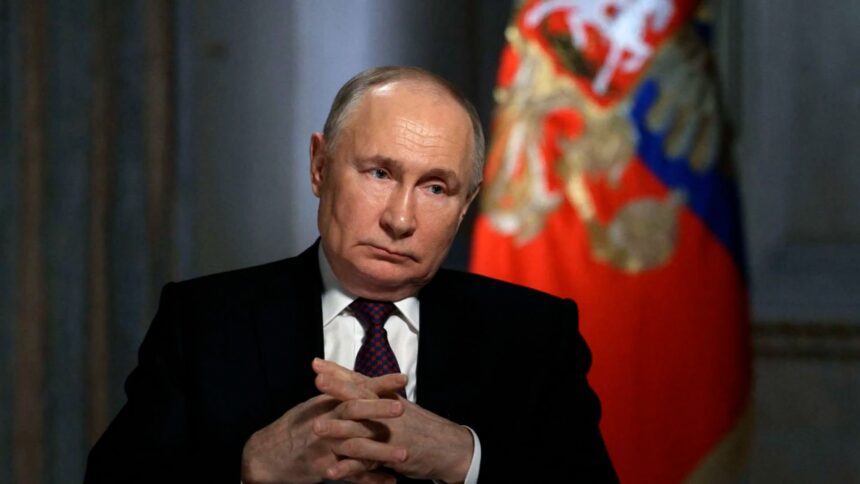Putin Expands Circumstances for Nuclear Weapons Deployment in Response to Western Actions
Russian President Vladimir Putin has signed a decree that broadens the situations in which Moscow may use nuclear weapons, in a move seen as a direct response to recent actions by the West and Ukraine.
The decree comes on the 1,000th day of Russia’s military campaign in Ukraine and follows the United States’ approval for Kyiv to use long-range missiles against military targets in Russia.
The updated doctrine now allows for the possibility of using nuclear weapons against a non-nuclear state if that state is supported by nuclear-armed countries.
Kremlin spokesperson Dmitry Peskov stated that a non-nuclear state’s aggression, backed by a nuclear power, would be considered a coordinated attack, clearly referencing Ukraine and its Western allies.
Peskov emphasized the importance of adjusting Russia’s principles to align with current circumstances, calling the revision a significant document that should be examined internationally.
According to Peskov, Russia has always viewed nuclear weapons as a deterrence strategy and would only use them if necessary to respond to a threat.
Putin has previously made nuclear threats during the conflict with Ukraine, causing concern in the West over what has been perceived as provocative rhetoric.
The updated doctrine now allows for a nuclear counterattack in response to a massive aerial assault, even if it involves conventional weapons only.
>In September, when the proposed changes were first announced, Peskov described it as a warning to those considering participating in an attack on Russia using various means, not limited to nuclear weapons.
The new doctrine also extends Russia’s nuclear protection to its ally Belarus.
On the 1,000th day of the conflict, Peskov accused the “collective West” of waging a war against Russia and affirmed that Moscow would continue its “special military operation” until its objectives are achieved.







